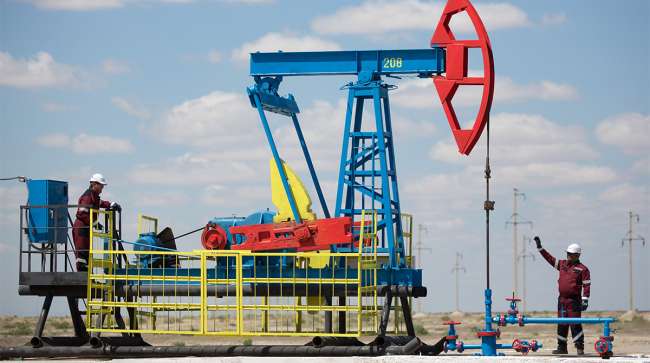OPEC+ Agrees to Pause Oil Supply Increase After Price Rout

[Stay on top of transportation news: Get TTNews in your inbox.]
OPEC+ clinched a deal to pause its planned oil output hike for two months after prices plunged amid fragile demand.
Key coalition members won’t go ahead with the scheduled hikes of 180,000 barrels a day in October and November, according to delegates who asked not to be identified because the discussions are private. Oil prices jumped more than 1%.
The rethink came after downbeat economic data from China and the U.S. — the biggest consumers — sent crude prices below $73 a barrel earlier this week, reaching the lowest since late 2023. This offers consumers some relief after years of rampant inflation, but leaves prices too low for the Saudis and others in the Organization of Petroleum Exporting Countries to cover their government spending.
With some members keen to ramp up supply, OPEC+ had agreed in June on a road map for gradually restoring supplies halted since 2022. But it vacillated as soon as the plan was unveiled, repeatedly stressing the increases could be “paused or reversed” if necessary. A major output disruption in Libya had seemed to offer the group space to go ahead, but the group led by Saudi Arabia and Russia opted instead for caution.
Transtex CEO Mathieu Boivin discusses the environmental sustainability of auxiliary power units. Tune in above or by going to RoadSigns.ttnews.com.
“OPEC+ faced a binary choice between delaying tapering and enduring a disorderly crude price rout,” said Bob McNally, president of consultant Rapidan Energy Group and a former White House official. “It appears to have chosen the former.”
While Brent futures immediately jumped, the international benchmark remains below $74 a barrel, a reflection that the alliance’s delay amounts to only 360,000 barrels a day in paper — and likely less in reality — in a global market that burns through more than 100 million per day.
Oil prices at these levels will provide some relief to central banks as they ease interest rates, and could even play into the US election campaign.
Postponing the rise might avert the surplus that prominent market-watchers such as the International Energy Agency and trading giant Trafigura Group were expecting in the fourth quarter. Conversely, opening the taps could have prompted a slump toward $50 a barrel, Citigroup Inc. had warned.
But the decision to delay may only defer the challenge for OPEC to next year.
World surpluses stand to swell in 2025 as fuel consumption growth remains subdued while output from the U.S., Guyana, Brazil and Canada keeps expanding, according to the IEA. BP Plc chief economist Spencer Dale warned Aug. 21 that the organization has “limited scope” to add barrels.
Brent crude tumbles below $75 a barrel, erasing 2024 gains https://t.co/pyIf4knYWO pic.twitter.com/UOgiqlsFsE — Bloomberg (@business) September 3, 2024
Nonetheless, the United Arab Emirates — one of the organization’s biggest producers — has been keen to deploy recent investments in new capacity, which Abu Dhabi says has reached a substantial 4.85 million barrels a day. That’s roughly 5% of world supplies. The UAE’s desire to pump more has stirred tensions within the group in the past.
At the start of this week, OPEC+ delegates were signaling that the scheduled boost remained on track.
Output in member Libya was slashed in half last week after authorities in the eastern region shuttered more than 500,000 barrels a day in a clash with the Tripoli-based government over control of the central bank.
The disruption came on top of the halt of Libya’s biggest oil field, Sharara, earlier in August.
But on Sept. 3, Sadiq Al-Kabir — the central bank governor whose attempted ouster precipitated the crisis — said there were “strong” indications political factions are nearing an agreement to overcome the current deadlock.
Brent futures plunged 5% and OPEC+ officials shifted position, saying that discussions on delaying the group’s supply hike were in progress.
Want more news? Listen to today's daily briefing above or go here for more info
While global crude markets are currently tight amid summer driving demand, they’re set to ease significantly once the seasonal peak in consumption passes.
Data from China has shown critical engines of economic growth sputtering, with factory activity contracting for a fourth month and the value of new-home sales declining. U.S. manufacturing activity showed a fifth consecutive month of contraction.
Also weighing on prices is OPEC+’s struggle with compliance. Iraq, Russia and Kazakhstan have dragged their heels on implementing their share of curbs as they seek to maximize revenues. Moscow is reliant on oil sales to fund President Vladimir Putin’s war against Ukraine.
The trio pledged to make extra curbs as compensation for their earlier cheating but have yet to make a start on these, and the group has a poor track record on implementation.
Written by Salma El Wardany, Grant Smith and Fiona MacDonald





